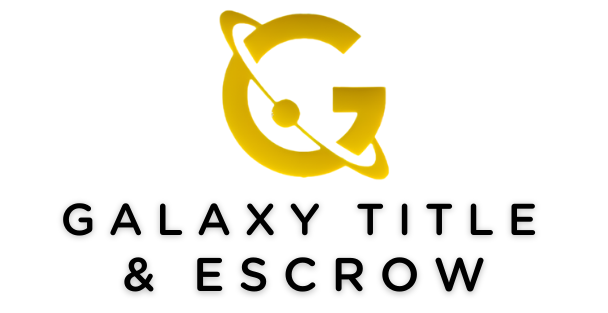The cost of closing on a new home in Florida can be an intimidating factor for potential buyers. Understanding who pays closing costs in Florida can help you plan and budget accordingly.
This article will provide an overview of the typical closing costs in Florida, who typically pays them, and what to expect as a buyer or seller. With this information, you’ll be better equipped to decide about buying or selling a home in the Sunshine State.
Are you looking for real estate help? Our South Florida title company can help you with services such as closing and escrow, title insurance, and notary services.
What are Closing Costs?
Closing costs are fees that are paid at the closing of a real estate transaction. These fees include items such as loan origination fees, title insurance, escrow or closing day deposits, and all other costs that must be paid to finalize the sale of a home. It is hard to determine the exact closing cost of a home without a specific property in mind because the fees vary.
Loan origination fees are charges assessed by lenders for processing your loan application and closing documents. Generally, these fees range from 0-1% of the total loan amount.
Title insurance protects both buyers and lenders from losses related to defects in a property’s title. Title insurance rates vary by state but typically cost between 0.5 – 1% of the purchase price.
An escrow or closing day deposit is a fee usually charged by the lender to cover any costs associated with transferring ownership from one party to another during the closing process, such as deed recording fees or transfer taxes. This fee is typically between $500 – $1,000.
In addition to these commonly encountered closing costs, other minor charges may apply in certain situations such as appraisal fees, recording fees, credit report charges, and more. All of these additional costs must be taken into consideration when calculating the total estimated closing costs for a particular real estate transaction.
Who Pays Closing Costs in Florida?
In Florida, closing costs are typically split between buyers and sellers. Buyers will typically pay for some of the fees associated with obtaining their mortgage, such as title fees, loan origination fees, and any other pre-paid expenses like property taxes and homeowners insurance.
Sellers will typically pay for things like deed preparation, transfer taxes, and real estate commissions. Both buyers and sellers can negotiate who pays what in a transaction.
Do Sellers Have to Pay Closing Costs in Florida?
Yes, sellers are typically responsible for paying closing costs in a home sale transaction in Florida. Depending on the specifics of the transaction, they may be responsible for fees such as title insurance, appraisal fees, transfer taxes, and/or documentary stamps.
A title company can answer questions about who pays closing costs to ensure buyers and sellers are not surprised by any fees.
What Does a Buyer and a Seller Pay at Closing in Florida?
A buyer and seller in Florida typically pay a variety of closing costs, including title search, document preparation fees, attorney’s fees, taxes, recording fees, and prepaid items.
The buyer is usually responsible for all closing costs associated with obtaining a loan (including applicable mortgage insurance premiums) and all other closing costs that are not paid by the seller. A buyer should expect to pay between 2.5% and 3.5% of the price of the home in closing costs.
Some of these costs may include an up-front payment for the homeowner’s insurance premium, property taxes, prepaid interest payments on the loan balance, appraisal fees, credit report charges, and settlement fees charged by the lender.
The seller typically pays real estate agent commissions as well as transfer taxes in some counties.
How Are Closing Costs Paid in Florida?

In Florida, closing costs are typically paid at the closing of a real estate transaction by the buyer and the seller. The closing costs are usually split between the two parties, with the seller typically paying for their portion of closing costs in advance at closing.
Buyers usually must pay for some or all of their closing costs directly to third-party providers, such as title companies, attorneys, surveyors, and lenders. The exact amount that each party is responsible for depends on both the terms of the Purchase Agreement and any applicable state laws.
Does the Seller Pay Title Fees in Florida?
In Florida, the seller is typically responsible for paying the title fees associated with the sale of the property. This includes fees such as transfer taxes, document stamps, and recording fees. Sellers should expect to pay around 7% – 9% of the home’s purchase price in closing costs.
The buyer is responsible for other related costs including homeowner’s insurance and any private mortgage insurance that may be required.
Are Closing Costs Higher in Florida?
The answer to the question of whether closing costs are higher in Florida depends on the specific circumstances involved. Generally speaking, closing costs can vary greatly from state to state. Factors such as the local real estate market, tax laws and regulations, and other changes may affect these costs.
For example, some states have specific laws that require sellers and buyers to pay different amounts for closing and escrow. Additionally, lenders often charge different fees based on the size of the loan and other factors. The cost of title insurance can also range significantly depending on location.
In Florida, closing costs tend to be slightly higher than the national average due to higher taxes and insurance premiums for homeowners in that state compared with other parts of the country. However, it is important to consider other factors when determining how much one will pay in closing costs in Florida or any state.
Contact your realtor or mortgage advisor to receive detailed information about your closing costs.
How Can Galaxy Help With Closing?
Here at Galaxy Title and Escrow, we help our clients with closing by providing services such as title insurance, preparing documents, coordinating closings, and disbursing funds. We can also provide escrow services to ensure that the buyer’s deposit is held securely until the transaction is completed.
If you are interested in our offerings, contact us to learn more. Galaxy is dedicated to providing clients with top-of-the-line service for their real estate needs.

